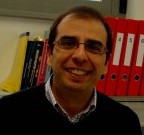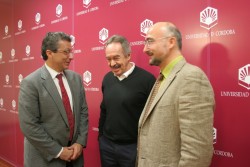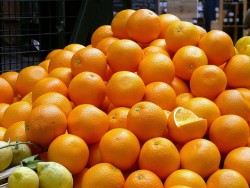
University of Cordoba professor Manuel Tena receives the European Society of Endocrinology prize
The European Journal of Endocrinology Prize (EJE) recognises the scientific work of the Cordobean specialist 
Neuroscientists appeal for international collaboration to advance the treatment of neurological illn
Harvard neurology professor Álvaro Pascual-Leone and lecturer Réne Drucker-Colín, from the Autonomous University of Mexico, analyse the clinical advantages and research into Transcranial Magnetic Stimulation at the University of Cordoba.
A mathematic model is developed to predict tumour growth.
The result of the investigation was published in the Journal of Computational Physics.
The Nobel Prize Laureate in Chemistry 2010 visits the University of Cordoba.
The Nobel Prize Laureate for Chemistry 2010, Ei-ichi Negishi, has met this morning, on the Rabanales campus with around twenty young researchers from the science faculty of the University of Cordoba with whom he exchanged opinions and answered a variety of questions about his work as well as the standing of chemistry and the main scientific goals faced by researchers in this field. For Negishi, technology and innovation are two constantly attractive routes for maximum advancement in the fields of knowledge.
Scientists of the University of Cordoba prove the relationship between growth hormone and obesity
In collaboration with a North American team, researchers of Cordoba have discovered certain cells that act as natural sensors against the accumulation of fat
6th IOBC Working Group Meeting on Multitrophic Interactions Soil
Look all the information at http://www.cordobamultitrophic2011.com/
Analysis of the contents of heavy metals in game and wild mushrooms
Researchers at the University of Cordoba assess the risk of excess consumption of various wild foods.
Researchers at the University of Cordoba convert orange peel residue into methane
 Researchers at the University of Cordoba have obtained methane through the manipulation of orange peel residue according to an article published in the magazine Bioresource Technology ((Volume 101, Issue 23, December 2010, pages 893-899).
Researchers at the University of Cordoba have obtained methane through the manipulation of orange peel residue according to an article published in the magazine Bioresource Technology ((Volume 101, Issue 23, December 2010, pages 893-899).
The University of Cordoba installs the first digital beehive to control the activity of bees in real
The device will allow for advances in the study of Colony Collapse Disorder (CCD) in beehives, which is key in climate change analysis.
The University of Cordoba installs the first digital beehive to control the activity of bees in real
The device will allow for advances in the study of Colony Collapse Disorder (CCD) in beehives, which is key in climate change analysis.

